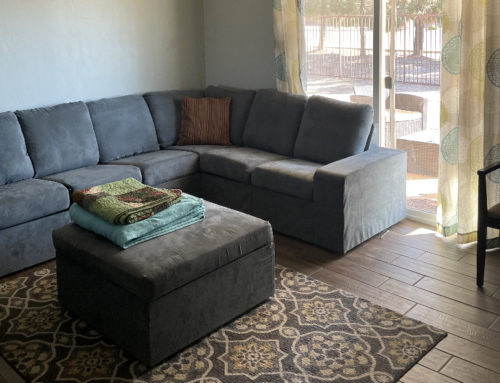
At Sunrise Residential Treatment Center, initiating feedback informed treatment is one of our core values. Sounds great, right? If feedback is defined as providing purposeful and constructive information about the performance at hand, it only makes sense to utilize it in a therapeutic environment. Great, that makes sense, right?
What do you think of when you hear the phrase feed-back informed treatment?
The vision that comes to my mind is a therapist sitting across a brightly light room from their client. There’s a large clock on the wall and a couple of potted plants in the corner. The therapist is speaking knowledgeably and empathetically to the client about the client’s areas of growth. The therapist is holding the client accountable and giving advice based on the information given and patterns shown by the client. It is then the client’s responsibility to apply this feedback provided by the therapist in order to grow. Right?
Maybe. Or maybe that is only one optional scenario to a multi-faceted and clinically sophisticated process in which both the client and the therapist are learning and growing from feedback. Sounds great, right?
Dialectical Behavior Therapy, or DBT, is an empirically evident form of psychotherapy that entwines growth in interpersonal effectiveness, mindfulness, emotional regulation, and distress tolerance in order to promote positive outcomes. Most importantly, for this blog anyway, is the fact that DBT is a feedback-informed treatment.
Let’s discuss!
The Behavioral Tech Comprehensive DBT Training describes DBT as a dance between client and therapist. Just like all dancers have the same rhythm but different choreography, all DBT processes have the same methodology but different and ever evolving goals. There are structured and effective therapeutic skills to use, but when and how often will look differently with each client. That makes sense, right?
Let’s dance and see!
At Sunrise Residential Treatment Center, before a student begins an individual session with their therapist she fills out Strength of Therapeutic Alliance SSR. She will also complete it at the end of each session. This assessment shows the health of the therapist-client relationship from the perspectives of the student and the therapist. The student will also fill out a survey called Client’s Perspective on Previous Week’s Performance. This allows the student to gain control over her therapeutic plan and outcomes by sharing how she felt about the weeks goals and why.
And thus the dance! With these subjective assessments, the pair can talk about how they are aligning on goals, effectiveness, and outcomes. During these discussions, feedback can be taken by the therapist in order to evolve services based on the needs of the client. In response, the therapist can also give feedback to the client as patterns show themselves through the repetitive assessments.
Pushing and pulling and stepping and staying on rhythm takes open communication and practice and feedback and evolution. So when we say that Sunrise RTC utilizes feedback-informed treatment we mean that, like in DBT, both the therapist and the client are constantly evaluating and reevaluating the effectiveness of both the therapeutic alignment and the effectiveness of the treatment. This allows for the promotion of quality and intentional services to meet the needs of each and every young lady at Sunrise Residential Treatment Center.
Great, Right?!
Written by Director of Professional and Business Development Tracey Gerlach, MAPP, CTRS




